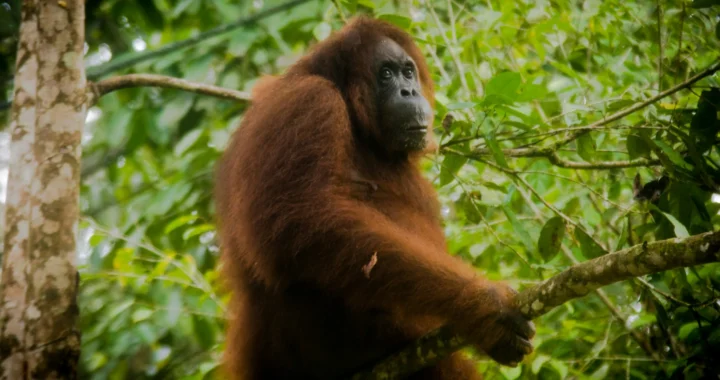Latest Key Insights in Climate Science, According to Researchers

Photo: Freepik
In recent years, climate change has been progressing at a rapid pace. Heatwaves, extreme weather events, rising sea levels, biodiversity loss, and environmental destruction wreak havoc all over the planet. These changes impact everyone, especially vulnerable communities. So, keeping up to date with the science of climate change is crucial to properly mitigate the risks. What are some of the latest key insights in climate science?
Off Track
After decades of denial, inaction, weak policies, and even harmful practices from governments and businesses, the world is way off track to limit global heating per the Paris Agreement. A final report by the Intergovernmental Panel on Climate Change (IPCC) reveals that the planet’s surface temperature will likely reach the 1.5°C limit in the early 2030s.
Bold, immediate, and effective actions are needed. Climate science is essential to making informed decisions regarding climate mitigation. At COP28, Future Earth, the Earth League, and the World Climate Research Programme launched their annual report, 10 New Insights in Climate Science 2023/2024.
Key Insights in Climate Science
The report was prepared by 67 leading researchers from 24 countries. It aims to act as a science-based and evidence-based guide for global negotiations and policymaking.
UNFCCC Executive Secretary Simon Stiell said, “The 10 New Insights in Climate Science report provides an essential tool for decision-makers at a critical time in the climate calendar each year. Scientific findings from reports like these should inform the ambitious and evidence-based action plans needed in this critical decade of accelerated climate action.”
The summary of the ten latest key insights in climate science is as follows:
- Going over the 1.5°C limit is quickly becoming inevitable, but it is not the end. Therefore, minimizing the magnitude and duration of this overshoot is essential.
- Staying within the 2°C limit of the Paris Agreement is possible with a rapid global fossil fuel phase-out.
- Effective carbon dioxide removal (CDR) is necessary to deal with hard-to-eliminate emissions, and robust policies are critical to achieving the scale we need.
- Over-reliance on natural carbon sinks is risky as their effectiveness might turn uncertain due to climate change. Therefore, emission reduction has to be the immediate priority.
- Climate and biodiversity emergencies are interlinked, so joint governance and holistic collaborations are critical.
- Compound events are when multiple hazards or factors occur simultaneously or sequentially, creating much bigger impacts than individual events. They amplify climate risks and should be addressed in risk management planning.
- Mountain glacier loss is accelerating, resulting in floods and water shortages.
- Immobility in areas exposed to climate risks is increasing, limiting people’s ability to relocate or evacuate.
- Addressing social justice enables more effective climate adaptation and builds stronger climate resilience.
- Reforming the food systems with equity and justice in mind is vital to just climate action.
Policy and Action
Every tiny increase in temperature means massive, dangerous changes for everyone and everything on Earth. Therefore, policymaking in climate adaptation should be quick, strict, and bold. It needs to lead to meaningful, holistic, and just transformations across all our systems, especially the ones mentioned above.
In the press release of the report launch, CGIAR Director Aditi Mukherji noted, “The intimate links between climate change mitigation and adaptation, biodiversity conservation, and broader societal needs, including food security, requires transformative change in how we jointly govern socio-ecological systems at all scales.”
Read the full report here.

Subscribe to Green Network Asia
Strengthen your personal and professional development with cross-sectoral insights on sustainability-related issues and sustainable development across the Asia Pacific and beyond.

Nazalea Kusuma
Naz is the Manager for International Digital Publications at Green Network Asia. She once studied Urban and Regional Planning and has lived in multiple cities across Southeast Asia. This personal experience has exposed her to diverse peoples & cultures and enriched her perspectives. Naz is an experienced and passionate writer, editor, translator, and creative designer with a decade worth of portfolio.


 Nickel Mining in Raja Ampat and the Widespread Cost of Natural Resource Exploitation
Nickel Mining in Raja Ampat and the Widespread Cost of Natural Resource Exploitation  Lumbung Sosial: Challenges and Opportunities of Indonesia’s Social Barn Program
Lumbung Sosial: Challenges and Opportunities of Indonesia’s Social Barn Program  A Worrying State of Insect Decline
A Worrying State of Insect Decline  GEF Approves Funding for Biodiversity Conservation Projects in Indonesia
GEF Approves Funding for Biodiversity Conservation Projects in Indonesia  Mikoko Pamoja, A Blue Carbon Project for Climate Resilience
Mikoko Pamoja, A Blue Carbon Project for Climate Resilience  Australia Released a Sustainable Finance Taxonomy to Support Net-zero Transition
Australia Released a Sustainable Finance Taxonomy to Support Net-zero Transition